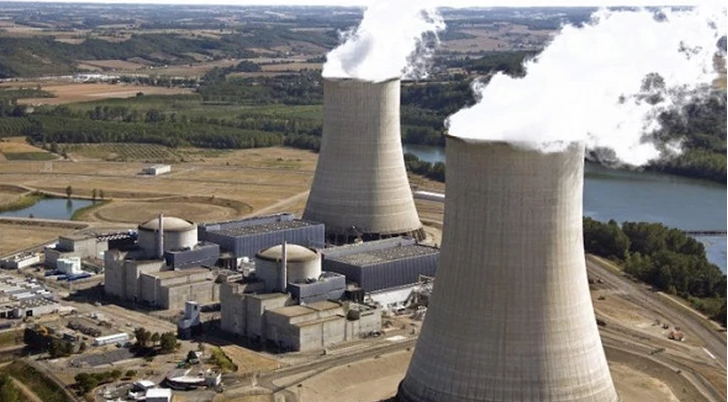Rwanda has announced a partnership with a Canadian-German company to build and operate the first small-scale nuclear reactor in Africa. The reactor, which will not generate electricity for the national grid, will test a new technology that claims to use nuclear fuel more efficiently and produce less waste.
The company, Dual Fluid Energy Inc., was founded in 2021 and is one of more than 20 small modular reactor projects in development worldwide, according to a report by the Organization for Economic Cooperation and Development’s Nuclear Energy Agency. Small modular reactors are advanced nuclear reactors that have a power capacity of up to 300 megawatts per unit, about a third of the size of traditional reactors. They are designed to be safer, more flexible and easier to transport than conventional reactors.
Dual Fluid Energy says its technology is based on “liquid fuel and lead coolant” that can produce emission-free electricity, hydrogen and synthetic fuels “at costs below those of fossil fuels”. It also says its technology can use nuclear fuel “up to a hundred times better” than in traditional light water reactors.
The reactor is expected to be operational by 2026, with testing of the technology to be completed by 2028, Rwanda’s government said in a statement. Rwanda will provide the site and infrastructure for the reactor, while its scientists will receive training in the technology. The deal is worth $75 million, according to local media reports.
The project is part of Rwanda’s strategy to explore nuclear power as a way to meet its growing energy needs and adapt to climate change. The country has also signed an agreement with Russia to construct a nuclear science and technology center in Rwanda.
However, the project faces some challenges and skepticism from experts, who say the technology is still in its early stages and has not been proven to be feasible or safe. They also question the claim that the reactor will pose no hazard to the environment or the population.
Rwanda, with more than 13 million people, is the most densely populated country in Africa. It is also one of the countries that have endorsed a call for a global tax on fossil fuels at the first Africa Climate Summit last week.
The project comes at a time when several African countries are considering or pursuing nuclear power as an option to reduce their energy deficit and carbon footprint. Ghana, for instance, has announced plans to host a US-funded small modular reactor training hub for the region.
Rwanda’s atomic energy board says the project will be carried out in accordance with the highest international standards of nuclear safety, security and non-proliferation. It also says the project will position Rwanda as a regional leader in nuclear technology and innovation.
Source: AP News



